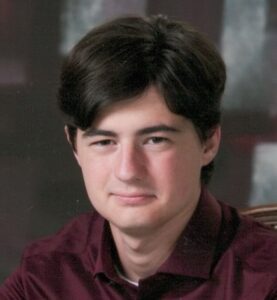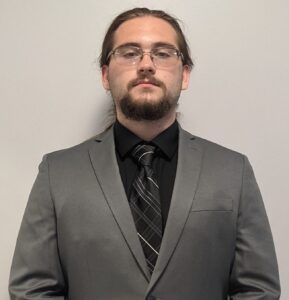This post is adapted from an announcement originally made by the Astronaut Scholarship Foundation

The Astronaut Scholarship Foundation recently announced its 2025 class of Astronaut Scholars, including University of Wisconsin–Madison physics and math major Nathan Wagner.
For 2025, a total of 74 undergraduate students from 51 universities and colleges across the United States will each receive up to $15,000. ASF will present this year’s Astronaut Scholars during its Innovators Symposium & Gala featuring the Neil Armstrong™ Award of Excellence on Aug. 13-16, 2025, at the Omni Houston Hotel in Houston, Texas.
Asked what the scholarship means to him, Wagner says:
“I’m humbled to receive this award — it’s a huge honor to represent UW–Madison and its Physics Department on the national level. The Astronaut Scholarship and its benefits are very inspiring and promise to provide years of guidance and mentorship to my fellow 2025 ASF peers and I. I thank the UW–Madison ASF liaison office and its selection committee for nominating me for national consideration. I also thank the many advisors, faculty, primary investigators, supervisors, staff, mentors and family who have supported me to this time in my life. I’m sincerely grateful for the recognition and commit to supporting ASF’s challenge to continue work that will push the boundaries of science and technology.”
ASF’s Astronaut Scholarship is offered to junior and senior-year college students pursuing degrees in STEM. The process begins with nominations from professors or faculty members at an ASF-partnering university. Upon selection, each student receives a scholarship up to $15,000. Additional highlights include exclusive mentorship and professional networking with astronauts, alumni and industry leaders. Astronaut Scholars also take part in the Michael Collins Family Professional Development Program and receive a fully funded trip to attend ASF’s Innovators Symposium & Gala, including a technical conference where Astronaut Scholars showcase their cutting-edge research.
ASF awarded its first seven $1,000 scholarships in 1986 to pay tribute to the pioneering Mercury 7 Astronauts — Scott Carpenter, Gordon Cooper, John Glenn, Virgil “Gus” Grissom, Walter Schirra, Alan Shepard and Deke Slayton. The program was championed by the six surviving Mercury 7 Astronauts, along with Betty Grissom (widow of Gus Grissom), Dr. William Douglas (Project Mercury’s flight surgeon) and Orlando philanthropist Henri Landwirth. What began as a powerful tribute, quickly evolved into a national commitment to support exceptional college students pursuing degrees in STEM. Since then, over the past 40 years, more than $10 million has been awarded to more than 850 college students.
